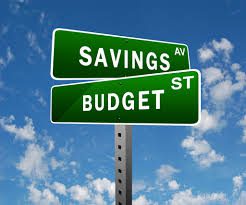
Insurance Companies Using Credit Scores
December 12, 2017
Happy New Year …. Time for an Earthquake Insurance Check-Up!
January 9, 2018If your New Year’s resolution is to improve your finances, you’re not alone! A simple, solid and easy to follow plan is needed for success. We have a few ideas to help you manage your money in the coming year.
Outline a budget.
A budget is a simple summary of the dollars earned and the dollars spent. A good budget will be your best tool to guide you to your financial goal. You should begin with your total net income; after which, you will list all your expenses. Fixed payments such as Rent, Mortgage, Insurance, Utilities etc. plus all the variables which would include credit cards and seasonal expenses; a good budget will be inclusive of all the details; it is important not to forget expenses like House Insurance, Earthquake Insurance, Membership Subscriptions and other similar items which may only pop up a couple of times a year.
Reduce your debt.
The worst type of debt is Personal Credit, also usually carrying the highest interest rate. Most financial advisors suggest devising a plan to make your largest payments to the credit with the highest interest. Primarily, you should calculate how much money will remain each month after paying all fixed and variable expenses; it is advisable to use the balance to pay your debt before saving money which will only pay a nominal interest rate as compared to the rate you’d be paying on personal credit cards. If paying off the debt becomes a very long-term process, you may want to seek different methods of reducing the interest in concert with paying down the debt; one idea may be to take advantage of a zero % interest offer, but these offers come with processing fees and there’s always a term attached to the offer after which the regular credit card interest rate will once again apply.
Begin a savings plan.
It is true that most jobs will provide food on the table and enough money to pay the bills; if you are well budgeted and perhaps lucky enough to have family finances on your side especially during your early years, you may be able to save money and build not only a good safety cushion but also have enough money to invest via building a financial portfolio or even real estate. A savings account equal to six months of income would be a starting point; once that is achieved, you have displayed the ability to save and the potential of achieving financial success. The discipline to cut all unnecessary spending is the first step in finding a little extra cash; the next step would be to analyze each and every expense to see if there is a more economical way to handle the necessary expenses. Once example would be to check with your home insurance company to see if you qualify for any additional discounts; perhaps to take advantage of free shipping or other discounts when shopping for online purchases, etc…
Although we make it feel simple, successful financial organization takes discipline. You may have to forgo a few expensive dinners if you’re going to keep your self-set plan to save $500 or $1,000 per month. There will always be excuses but the question is ‘Do you have the discipline to keep true to your financial plan?’.


